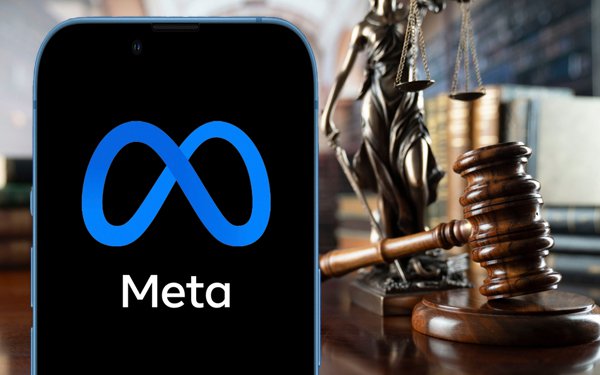
A federal judge has refused to revive a Baltimore
resident's lawsuit against Meta over ads for counterfeit products.
In an opinion issued Monday, U.S. District Court Judge George Russell, III in Baltimore said state resident
Barry Glazer failed to offer any "factual or legal grounds to warrant reconsideration."
Absent intervention by an appellate court, the ruling brings an end to Glazer's claim
that Meta's terms of service require the company to police its platform for phony ads.
The new decision comes in a battle that began in May, when Glazer -- a prominent personal
injury attorney and medical malpractice attorney, as well as long-time TV advertiser -- alleged in a class-action
complaint that he purchased 20 purported U.S. Morgan silver dollars from the late 1800s for $3.50 each, after viewing an ad for them on Facebook Marketplace.
advertisement
advertisement
Glazer alleged
that he was "intrigued by the implausibly low price but misled by the presentation of the listing."
He later discovered the coins were counterfeit, after which he sued Meta
over the ads.
The complaint included a claim that Meta broke its contract with users by failing to "remove or properly address" fake ads. That claim hinged on language in
Meta's terms of service, which say the company attempts to detect misuse of its product and harmful conduct, and that if it learns of content that
violates its policies it "may take appropriate action," including disabling accounts.
Russell dismissed Glazer's suit against Meta in mid-October, ruling that Section 230 of
the Communications Decency Act protected the platform from liability. That law generally immunizes companies from lawsuits over illegal content posted by third parties.
Late
last month, Glazer urged Russell to reconsider, arguing that "plain language" of the terms of service "creates the appearance that defendant has created a binding promise to take some type of
action."
"To allow these giant corporations to walk away from any responsibility is to be complicit in the flimflamming of hundreds of thousands innocent, perhaps less
intelligent or impaired citizens," Glazer argued.
Russell rejected that argument Monday.
"It appears that Glazer simply disagrees with the court’s
conclusion that the [terms of service] did not impose an affirmative obligation on Meta to remove fraudulent posts," Glazer wrote.
He also suggested that Glazer waited too long
to raise arguments regarding the policy implications of the dispute.
"To the extent Glazer is raising a new policy-based argument against Meta’s interpretation of the [terms of service],
a motion for reconsideration is not an appropriate vehicle to do so absent an explanation as to why he could not raise that argument at the motion to dismiss stage," Russell wrote.
Meta currently faces a similar lawsuit in California, brought by Facebook users who lost money after responding to fake advertisements.
U.S. District Court
Judge Jeffrey White in the Northern District of California initially dismissed that lawsuit, ruling that Section 230 barred the claims, but the 9th Circuit Court of Appeals revived the case.
The appellate court specifically ruled that the Facebook users
could attempt to prove that Meta violated its terms of service by allegedly failing to police Facebook ads placed by third parties.
White recently rejected Meta's renewed bid to dismiss the case, holding that the
allegations against the platform, if found to be true, could support claims the company broke its contract with users and violated its duty of good faith.
Meta is now seeking
to appeal that ruling, and the tech organization NetChoice is backing Meta's bid for a fast appeal. That group argued in a proposed
friend-of-the-court brief filed last week that the 9th Circuit Court of Appeals should decide whether "aspirational" statements in companies' terms of service give users grounds to sue.